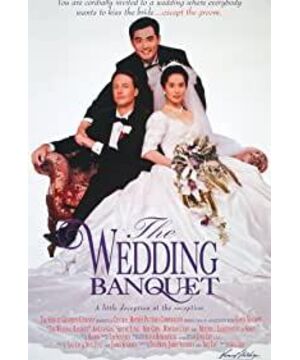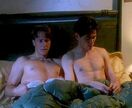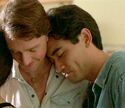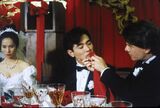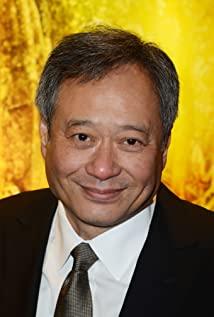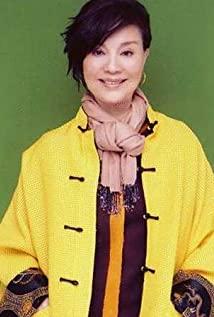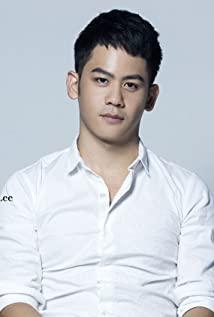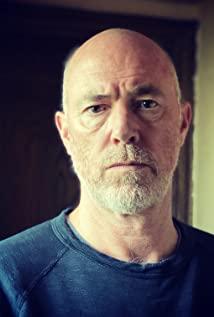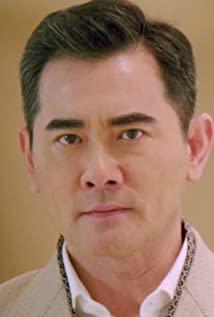Speaking of "The Wedding Banquet", I have to mention Ang Lee's other two works, "Pushing Hands" produced in 1991 and "Diet Men and Women" produced in 1994. The three works are collectively known as the 'Family Trilogy'. , or the 'Father Trilogy'. The story of "The Wedding Banquet" is very clear at the beginning, exploring the topic of homosexuality. son Gao Weitong , is a Taiwanese who is in the real estate business in the United States. He has no worries about food and clothing, and has small achievements, but he has a secret gay man who is in the door. His parents in Taiwan want to see their son get married early and have a grandson, and make phone calls every three days. To find a partner for his son, to come up with ideas, in order to prevaricate his parents far away in Taiwan, Semen suggested to Wei Tong to have a fake marriage. The marriage object is the Shanghai girl who rented their house and couldn't pay the rent, and was very unhappy in painting all day long. Weiwei, Weiwei has come to the United States from Shanghai for many years. She has no job and lacks a green card. This marriage is a pressing need. Unexpectedly, the parents were very excited when they heard the news of their son's marriage, so they rushed to the United States from Taiwan to hold a grand wedding banquet for Wei Tong. Weiwei actually did a fake show. Weiwei later became pregnant. At this time, Saimen finally couldn't sit still. After a big quarrel, his relationship with Weitong also turned red. The wave started again, and Wei Tong's father suddenly suffered from a stroke at this time. In desperation, Wei Tong finally confessed his true feelings to his mother to his mother in the hospital where he visited his father. The shocked mother asked Wei Tong. Don't tell your father about the same thing. On the other hand, Wei Tong's father, who was discharged from the hospital, gave a birthday present to Saimen during a walk. He said, "Actually, I know some English" and thanked him. Take care of Wei Tong over the years. In this way, after a lively and lively wedding banquet, the parents left the United States with Wei Tong's wedding album, and their sons who concealed their same-sex identity, and Wei Wei also decided to give birth to the child at a critical moment. A wedding banquet ended like this, and the ending was a happy one. After watching the film, the first thing I noticed was Lang Xiong, a well-respected Taiwanese veteran who has worked with director Ang Lee many times, and played the role of father in Ang Lee's 'Family Trilogy' three times. , is simply the incarnation of the father figure in Ang Lee's films. I still remember that in "Pushing Hands" produced in 1991, he played Master Zhu, who was kindly received by his son from Beijing to the United States to enjoy the blessings, but then suffered a lot because of the inevitable differences between Chinese and Western cultures; when it came to "The Wedding Banquet", he He turned into Uncle Gao, a retired teacher who pretended not to know his son's homosexuality on the surface, but secretly fulfilled his son's homosexuality and accepted his son's homosexuality. A good father, who has broken his heart for his three daughters all his life; we can see the consistency and progression of his roles from the images of these three fathers. The father played by Lang Xiong is definitely not the kind of nagging, approachable father who can get along with his children. On the contrary, he However, he always maintains his awesome silence and stubbornness, but when it comes to the love for his children in the play, it is absolutely unreserved. Master Zhu in "Pushing Hands" planned to spend his life washing dishes in a Chinese restaurant in order to fulfill his son's family's happy life; Uncle Gao in "The Wedding Banquet" silently accepted his son's homosexuality for the sake of his son's happiness; " Master Zhu in "Diet Men and Women" brought up three daughters by himself. It can be said that Ang Lee's film made Lang Xiong, and Lang Xiong became the father in Ang Lee's film. After talking about Lang Xiong, we inevitably have to talk about another important element that the film cuts into, gay identity. As a social culture and social phenomenon, homosexuality has gradually entered the public eye with the overwhelming film and literature propaganda in recent years. Imagine that one day you suddenly learned that your same-sex friend is gay, and you have been peeping at yourself for a long time, how would you react? Under normal circumstances, I am afraid that you will recall the various pictures of getting along with him. If there is no skin-to-skin blind date, you will be out of breath. If one day you meet a gay man to confess to you, I think most of you will be able to cut the seat and not get along with each other. As for the scene where everyone is still brothers and friends after the confession, I am afraid it can only be the scene in the movie. Yes, you see, nowadays more and more people dare to openly admit their same-sex identity, but after careful analysis, most of these people hide themselves in virtual IDs, yes, who wants to harden this wall in the real world Collide! ? As the saying goes, although comrades have feelings, society always has no intentions. After all, in the hearts of most members of society, homosexuality is still considered a disease, just like the mother in the film heard the son's homosexual identity for the first time and immediately questioned his son if he had the disease. This is the cognitive problem of most members of society, and this cognitive problem cannot be corrected in a day or two. Looking around us, various talent shows always like to use same-sex identity as a hot topic, what kind of handsome men, what same-sex tone, what same-sex temperament, and the mainstream culture's mockery and irony of same-sex identity can be seen everywhere. To this day, I still remember a story in college. It said that the key to determining the identity of gay men is to see if they hold their orchid fingers. This kind of teasing and teasing does not mean that our society has been civilized to accept the so-called same-sex identity equally, but it shows the dilemma of same-sex identity. Going back to the film, as a light comedy, the ending of "The Wedding Banquet" is still bright. At least Uncle Gao and Aunt Gao silently accepted their son's same-sex identity. Although they concealed this fact from each other and kept silent, at least they did not decide. to sever family ties. In fact, what's the big deal, under the dim street lights , After a tiring day, you just want to go home and relax. If there is no lover at home, what is the point of this moment? ! Same-sex and mortal! It's just, how many same-sex identities can have this blessing and enjoy the happy ending after "The Wedding Banquet"? !
View more about The Wedding Banquet reviews


